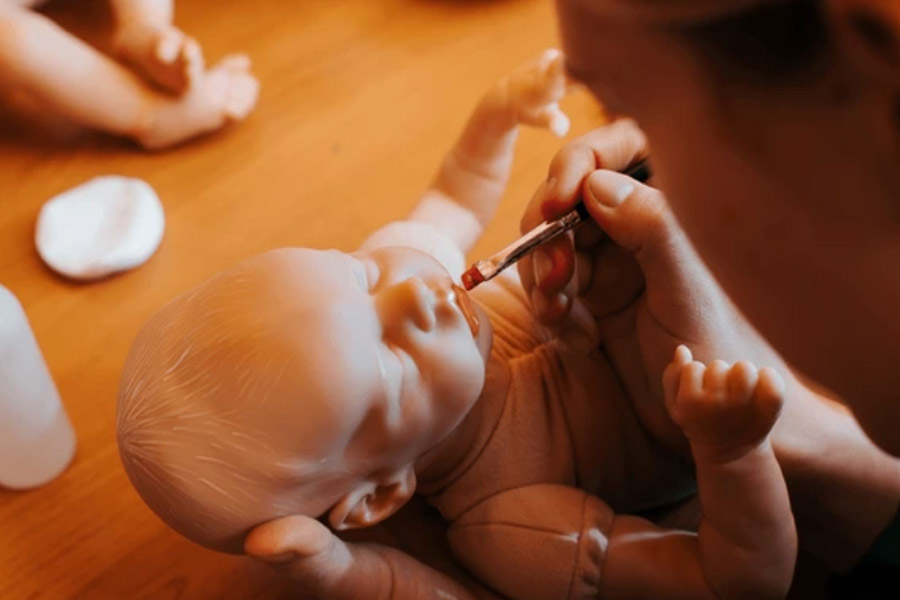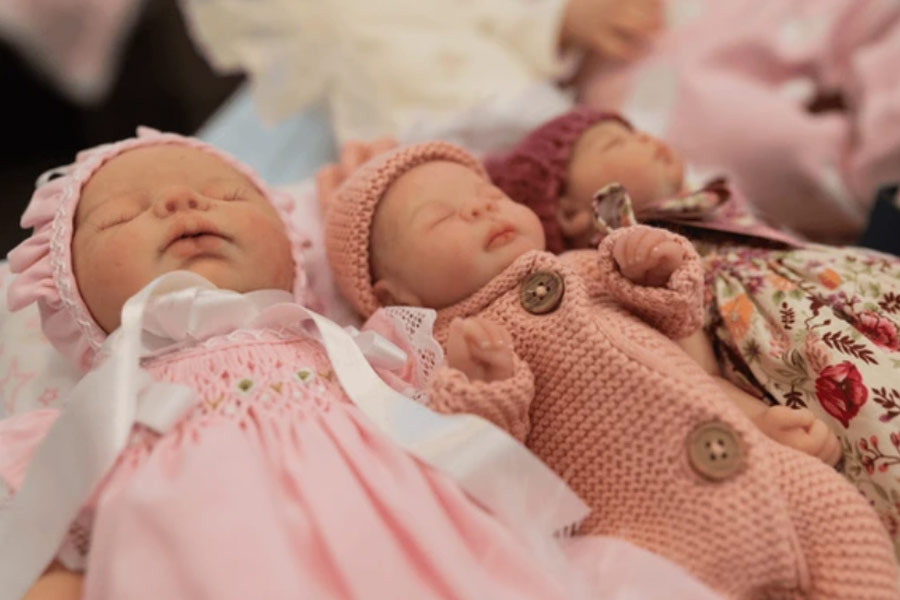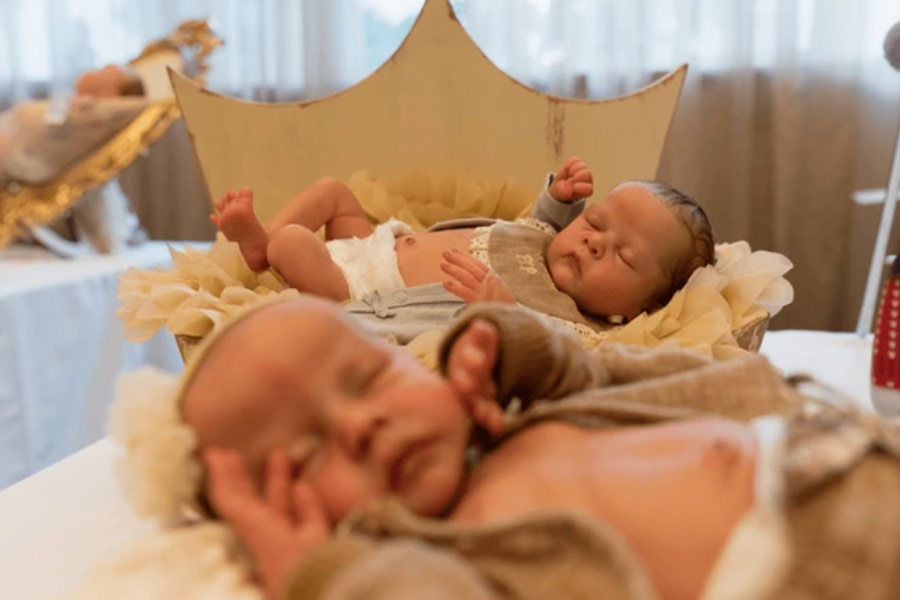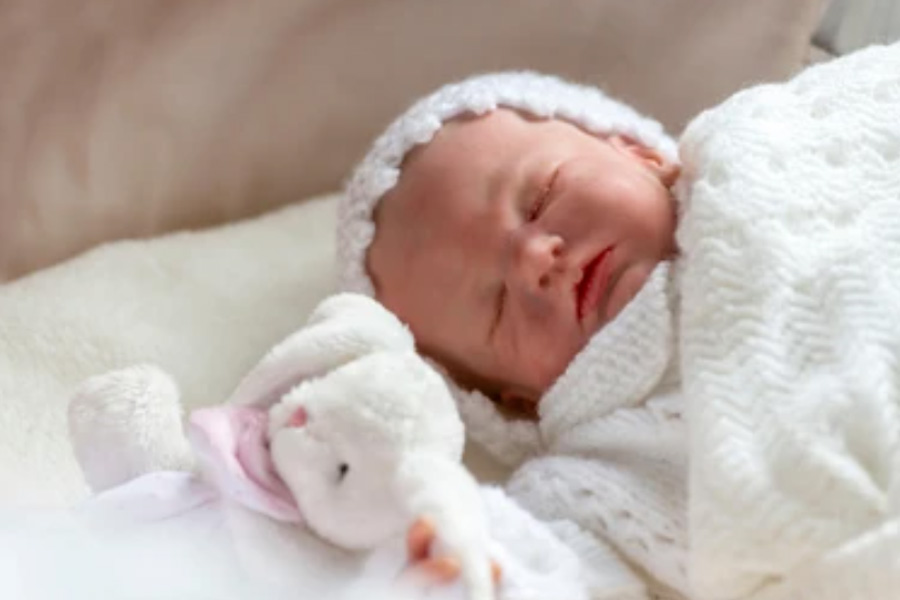In a quiet, dimly-lit room in north Kolkata, a 37-year-old woman gently cradles a baby-esque doll dressed in a pastel onesie. Its skin looks soft, eyelashes delicately rooted, and its chest rises and falls as if it is breathing. For this woman, who lost her first child at birth eight years ago, holding the silicone reborn doll has become a part of silent, solitary healing.
“It’s not the same, of course. But in moments when grief becomes too much, just holding her calms me,” she said.
In India, where grief is often kept private and mental health still battles stigma, these silent companions are slowly opening doors to conversations around an alternate therapy for women dealing with the loss of an infant. The demand for life-like baby dolls is picking up in Kolkata, too. But are they helping?
Although reborn dolls are popular in the West as a form of therapy for grief, anxiety, dementia, or emotional trauma, in India, they’re still largely seen as toys or collectibles. But mental health experts say they have the potential to do much more.
Dolls for healing

Life-like dolls that mimic real babies, down to the wrinkles, veins, and baby scent, may seem unsettling at first glance. But therapists in the West have long used them in “reborn doll therapy”, particularly with women coping with infertility or child loss, elderly people with dementia, or those experiencing loneliness and emotional distress.
In India, however, the idea is still unfamiliar and often absurd to many.
Priyanka Das, a reborn doll seller based out of Kolkata, said, “Most of the people who buy from me are parents looking for a gift for their children. Some are collectors. But I’ve never had a customer ask about these dolls for therapy.”
Another seller, Priyanka Saha, imports her dolls from Thailand and China. She echoed the sentiment. “No one talks about using them emotionally. For most people, they are still just dolls.”
Expert insight: The Science behind potential benefits

Poulomee Shaw, counselling and mental health specialist at AM Medical, believes India isn’t far from embracing the therapeutic value of reborn dolls.
“Reborn doll therapy promotes feelings of relaxation and pleasure. Studies suggest that cuddling a baby releases hormones like oxytocin, which produce a sense of emotional well-being. Some psychologists believe that this hormonal response may be triggered even when the baby is not real, as long as the brain perceives the sensory stimuli,” she explained
According to Shaw, the tactile and emotional experience of dressing, feeding, or simply holding these dolls can help individuals process trauma, cope with loss, and feel emotionally grounded. “This kind of therapy can be a valuable addition for those who are not ready for verbal therapy or for whom grief is too raw to express,” she added.
However, Shaw also cautions that it must be handled with care. “It is not a replacement for human connection or therapy. And like any psychological tool, it needs professional guidance and a tailored approach.”
Why professional guidance is important
Critics have expressed concern that the use of reborn dolls, especially among the elderly with dementia, might infantilise them or encourage unhealthy attachments. There are also fears that without proper caregiver training or psychological supervision, people might retreat further into fantasy instead of facing their grief.
But Poulamee Shaw believes that these risks can be mitigated. “With the right training for therapists and caregivers, and with awareness of individual needs, reborn doll therapy can become a powerful tool for healing,” she said.
The fear of society: Still a long way to go

Despite its potential, India has been slow to accept reborn dolls as anything more than novelty items. In a country where emotional health often comes second to social expectation, the sight of an adult with a doll may evoke confusion, discomfort, or mockery.
The 37-year-old, who kept her doll a secret for months, knows this well. “I didn’t even tell my husband at first. I thought he would think I’ve lost it. But when he saw how much calmer I was, how I’d finally started sleeping again, he understood. Now he helps me change her clothes,” she said.
The stigma around mental health and emotional expression is a major barrier. But she believes stories like hers can help others open up. “If it can help even one woman like me find peace, it’s worth it,” she said.
A market waiting to grow
Reborn dolls are available in Kolkata, mostly through online sellers or social media-based vendors who import them from Thailand and China. The price can range from Rs 10,000 to over Rs 50,000, depending on the realism, materials used, and features like weight or breathing simulation.
While collectors and children form the bulk of the current buyers, mental health professionals and support groups are slowly beginning a discourse around the therapeutic benefits of these dolls.
